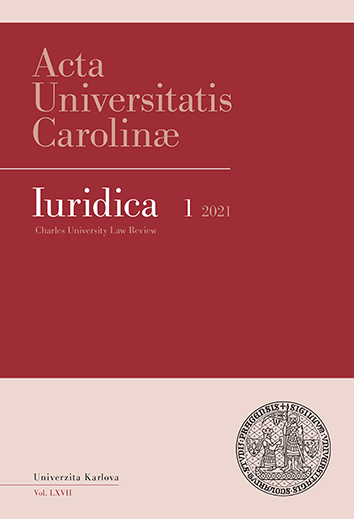Čtrnáctý dodatek Ústavy USA a jeho výklad z pohledu hlavních interpretačních metod
The Fourtheenth Amendment to the United States Constitution and its Interpretation by Main Constitutional Interpretive Methods
Author(s): Jaroslav ŽeníšekSubject(s): Constitutional Law
Published by: Univerzita Karlova v Praze, Nakladatelství Karolinum
Keywords: Constitution of the United States; Fourteenth Amendment; Supreme Court; interpretation
Summary/Abstract: The paper analyzes the Fourteenth Amendment to the United States Constitution, especially its first section and the clauses contained in it: the citizenship clause, the privileges or immunities clause, the due process clause and the equal protection clause and the historically variable interpretation of those by the Supreme Court, the decisions of which often accounted for fundamental changes in the perception of the provisions of the Fourteenth Amendment. Quite frequently, it was the Supreme Court that stood behind the significant social changes throughout history, whether in the area of racial segregation that still lasted for many years in the United States even after the end of the civil war, or later in the area of the right to privacy. The paper also deals with the approach of the dominant methods of interpretation to the Fourteenth Amendment, it compares the different approaches and the resulting interpretative conclusions. A special attention is dedicated to the contradictory interpretations of the originalist theory and the Living Constitution theory, the conflict between the advocates of these two lasting until today and still constituting an important part of the constitutional law debate in the United States.
Journal: Acta Universitatis Carolinae Iuridica
- Issue Year: 67/2021
- Issue No: 1
- Page Range: 7-23
- Page Count: 17
- Language: Czech

